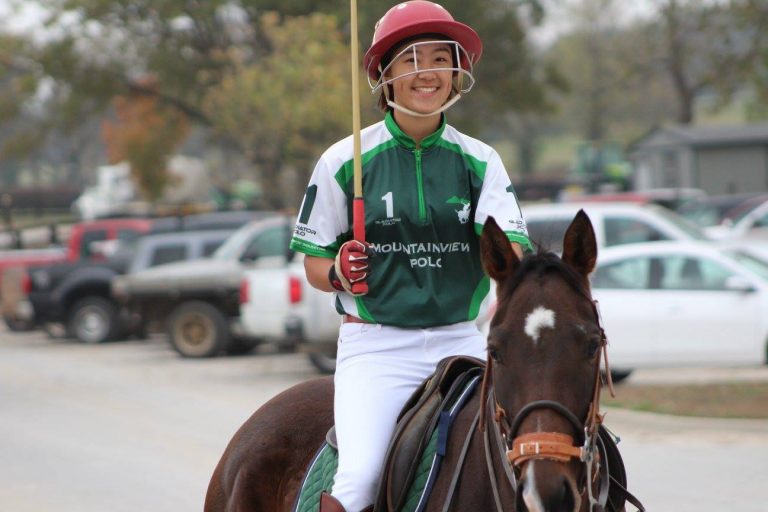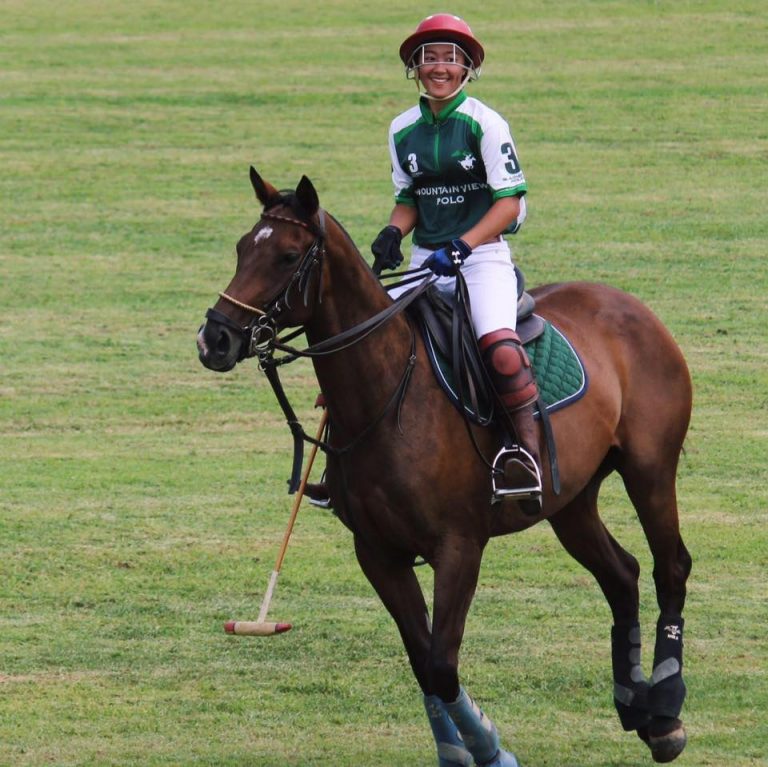In summer 2020, we launched a 1st Annual $5,000+ Diversity Scholarship with the support of generous donors, inviting minority equestrians to contribute to the discussion of diversity and inclusion in equestrian sport. It is the mission of this annual bursary, which we intend to expand in coming years, to call for, encourage, elevate and give a platform to minority voices in a space where they are underrepresented.
How do we build a more diverse, inclusive and accessible sport? In the coming weeks, we will explore this question alongside many of the 27 Scholarship recipients as they share with us their essays in full. Collectively, their perspectives coalesce into a body of work that will no doubt help inform a viable path forward for equestrian sport, and we are committed to connecting their actionable ideas with the public as well as leaders and stakeholders of the sport.
Today we welcome Lea Jih-Vieira. More voices: Scnobia Stewart | Kimberly Kojima | Helen Casteel | Lissette Williams | Christopher Ferralez | Malachi Hinton | Mitike Mathews | Katherine Un | Muhammad Shahroze Rehman | Dana Bivens | Leilani Jackson | Julie Upshur | Aki Joy Maruyama | Jen Spencer | Jordyn Hale | Dawn Edgerton-Cameron | Madison Buening | Caden Barrera | Deonte Sewell | Anastasia Curwood
 Photo courtesy Lea Jih-Vieira/Mountain View Polo.
Photo courtesy Lea Jih-Vieira/Mountain View Polo.
From eventing to reining to vaulting, equestrian sport provides disciplines for everyone. For me, I started in hunters, dabbled in barrel racing, and ended up in polo. What began as a fascination with trying to hit a ball while on a horse has led me on a journey I never could have anticipated. I started by playing in the high school interscholastic league, captaining the varsity girls team at my polo club for three years. In 2016, I competed in and won the junior polo division in the Retired Racehorse Project. Recently, I completed my freshman year at Cornell University while on the Division I women’s polo team.
I am extremely grateful for everything I have experienced because of polo. However, I cannot help but occasionally wonder what I could have achieved had I been provided more resources. The irony in that statement is that I am by no means underprivileged; I belong to a supportive middle class family — we go on annual vacations, eat out at least once a week, and live in a safe and quiet neighborhood. Yet, my situation is no match for polo’s high economic barriers. It is hard to compete against the girls who play on their family farm’s best string of polo ponies, and the girls who spend their summers travelling the country playing in prestigious tournaments. There are countless times I turned down offers to play in tournaments because I could not afford it, or times I was only able to play because I had connections to people generous enough to subsidize the costs for me. I have missed so many opportunities to improve my game solely because I could not afford it.
 Photo courtesy Lea Jih-Vieira/Mountain View Polo.
Photo courtesy Lea Jih-Vieira/Mountain View Polo.
Despite polo bearing the nickname “the rich man’s sport,” these challenges are experienced by the entire equestrian community, regardless of discipline. Purchasing or even leasing a horse is an enormous financial burden, one that many equestrians cannot pay for. Expensive equipment and attire prevent many riders from participating in competition. Depending on where someone lives, it can be difficult to simply find a barn close enough and affordable enough to start lessons. Considering these barriers are most prevalent in urban spaces where 56% of residents are POC and 17.7% of children live in poverty, we start to uncover an explanation for the lack of diversity.
The underlying issue why we have a lack of diversity in equestrian sport amounts to a socioeconomic issue. The historic systems in place, meant to limit people of color, are so interwoven in the fabric of our country that we may not even realize how much they influence our lives today. When ethnic and racial minorities are facing challenges like generational poverty, unemployment, and psychological distress, spending money and resources on a leisurely activity like riding is unimportant. To make equestrian sport more inclusive, we must be mindful of the struggles of these communities. It is simply not feasible for these families to spend hundreds or thousands of dollars per month for a couple of riding lessons and one competition.
It is up to organizations such as the United States Eventing Association, United States Polo Association, Women’s Professional Rodeo Association, and others to show that they care about breaking down barriers for low-income individuals interested in entering the sport. By allocating money to help this population of aspiring equestrians start their careers, these organizations are not only supporting these individuals, but are setting an example for everyone in the community — we all should care about making our sport more inclusive because we get to share the joy of it with others. By breaking down financial barriers, we will invite more diverse communities into the sport that never would have had access otherwise.
If we fail to acknowledge just how many barriers are inherent to the sport, we fail to make it accessible to all. By recognizing its shortfalls and targeting the communities that have been historically excluded because of those barriers, the equestrian community will finally be able to effectively promote diversity and inclusion.
Nation Media wishes to thank Barry and Cyndy Oliff, Katherine Coleman and Hannah Hawkins for their financial support of this Scholarship. We also wish to thank our readers for their support, both of this endeavor and in advance for all the important work still to come.
Get involved! Lea’s equestrian sport of choice, polo, has traditionally been known as one of the most cost prohibitive. But access barriers to the sport are slowly being dismantled, thanks to the hard work of individuals and clubs within the sport. No longer is it necessary to own your own string of horses or equipment to get involved — clubs like Mountain View Polo in Charles Town, WV, which Lea is shown representing in the photos above, invite anyone to get involved regardless of their age or riding experience. Many polo clubs now offer instruction — visit the U.S. Polo Association website to find a club near you.
Perhaps you’ve heard of Philadelphia’s Work to Ride program. This non-profit community-based prevention program aids disadvantaged urban youth though constructive activities centered on horsemanship, equine sports and education, and it’s free to low-income inner city at-risk youth. In 1999 Work to Ride made history with the first African-American polo team in the nation; since then it has gone on to win honors including the National Interscholastic Polo Championship, and its players have gone on to compete at the sport’s highest level. Learn how you can get involved here. Also, check out this video.
Could this type of program model be adapted to other cities and equestrian disciplines? Let’s get to work on it.
